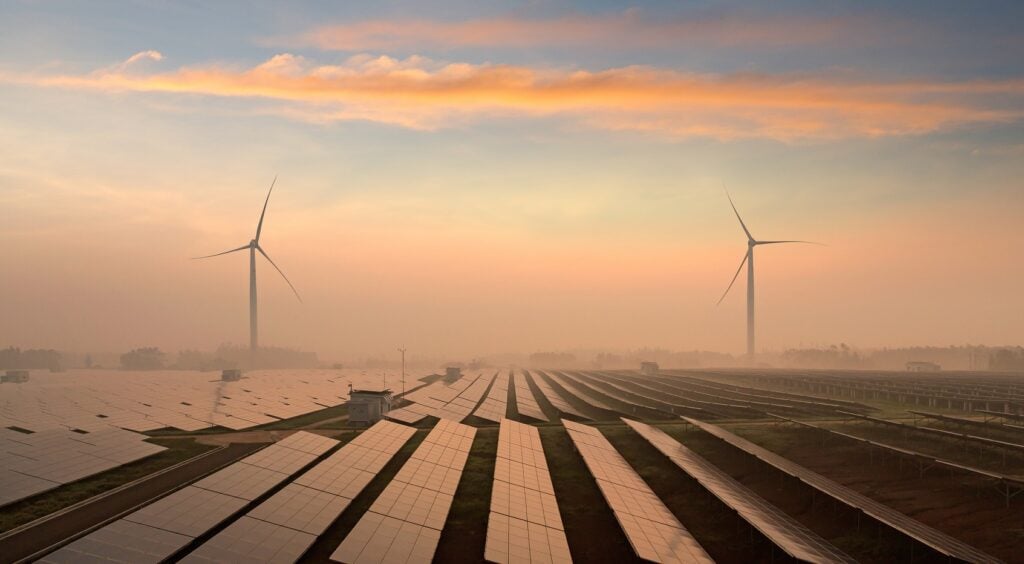Renewable energy generation hit a record high in 2018, with gas, coal and nuclear all falling.
New statistics released by the Department for Business, Energy and Industrial Strategy (BEIS) showed that renewable energy accounted for 27.5% of the UK electricity supply last year, an increase of four percentage points on the previous year.
Renewable energy production in total rose by 8.7%, with solar, wind, and hydro output increasing by 12%.
Overall, low carbon generation accounted for a record high of 49.6% of supply, up from 46.9% in 2017. BEIS credits this to increases in capacity for wind, solar and bioenergy, leading to an increase in generation.
But while the figures released by BEIS may point to a positive shift in the UK’s energy production, they are overshadowed by increasing concern within the industry.
Last year, the Committee on Climate Change (CCC) warned that the UK continues to be off track in meeting emissions targets for the 2020s and 30s. In its annual report, the CCC pointed to the rise of emissions in the transport sector, as well as plateauing of emissions in other sectors.
In 2017, the CCC criticised BEIS over the release of its Clean Growth Strategy, with the measures outlined to meet its fourth and fifth carbon budgets for the periods out to 2027 and 2032 falling 6% and 9% short respectively.
BEIS said that the gap could be filled with the use of ‘flexibilities’, which would allow the government to use additional savings from previous budget periods to make up the difference. But last month, the CCC renewed its concerns over using flexibilities as a solution.






